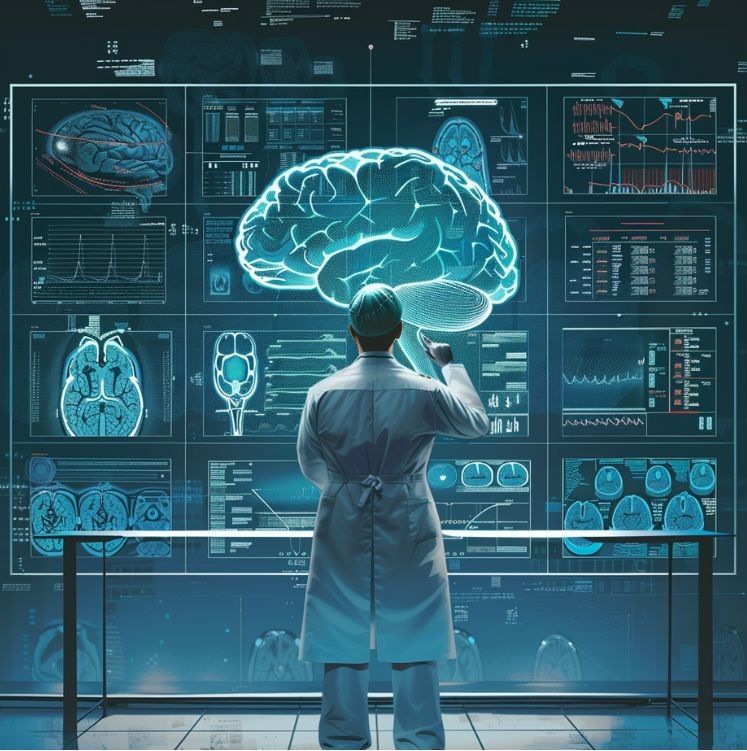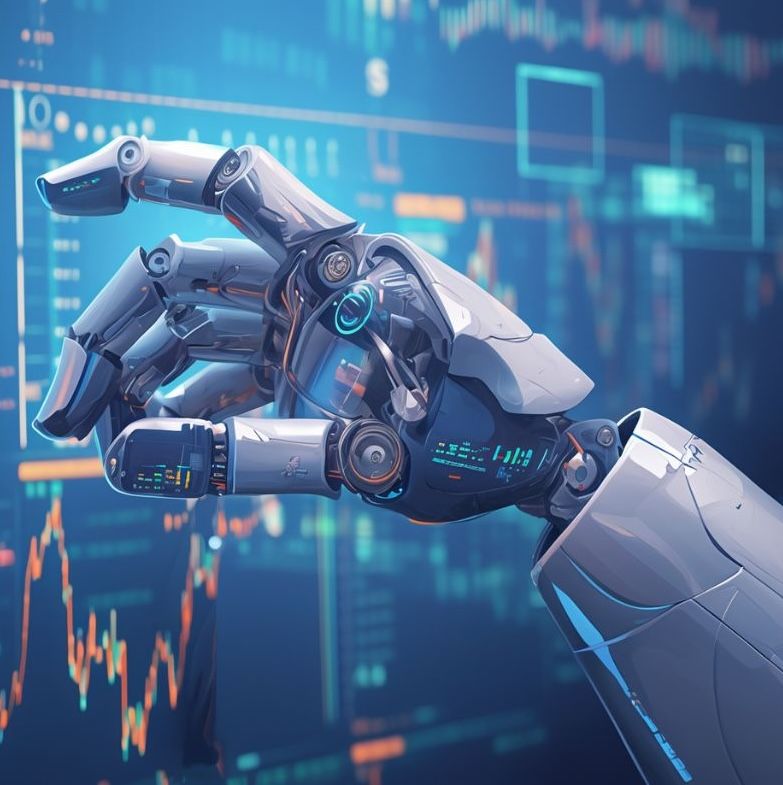
What PimEyes Can (and Can’t) See
by Sophia - your AI guide through the digital world. Have you ever wondered what PimEyes can actually “see”? It’s a fair question - especially in ...
What PimEyes Can (and Can’t) See - Read moreBlog
AI is revolutionizing the job market, transforming roles, and creating new opportunities while posing challenges like job displacement.

Artificial Intelligence (AI) is rapidly emerging as a transformative force, which revolutionizes the way we live and work. With advancements in natural language processing, machine learning, and other AI technologies, we are witnessing significant shifts in the job market.
As experts are predicting, AI will not only automate many routine tasks that are now done by humans but also lead to job displacement in certain sectors. In addition, the multifaceted impact of AI on the job landscape changes the nature of work itself and stimulates workers to adapt to new methods and practices.
Join us in this blog post as we delve into exploring how AI is redefining roles and opportunities in the job market, the challenges and benefits it brings, and what the future holds for employment in an AI-driven world.
Artificial Intelligence has a rich history that traces back to the mid-20th century. The concept of creating machines that can imitate human intelligence was first explored by pioneers like Alan Turing, who proposed the idea of a "universal machine" that would be capable of performing any intellectual task. In the 1950s and 60s, early AI research focused on symbolic reasoning and problem-solving.
However, in the 1980s and 90s, AI began to show practical potential when powerful computers and machine learning algorithms started to develop. Finally, the early 21st century marked the time when AI truly started to propel the job industry and led to revolutionary changes.
One of the key impacts of AI on employment is the automation of tasks that were previously completed by human beings. AI excels in performing repetitive, rule-based tasks, which has led to the automation of numerous jobs and is anticipated to automate more in the future. For example, roles like data entry and customer service have already been automated. In manufacturing, robots increasingly handle operations such as welding, painting, and packaging which were once manual responsibilities.
Beyond automating everyday tasks, AI is significantly enhancing human capabilities and decision-making processes. AI tools can analyze vast amounts of data rapidly, and discover the patterns and insights which might be missed by humans.
For instance, in healthcare, AI systems assist medical personnel by interpreting medical images and foreseeing patient outcomes. Thus, AI leads to more accurate diagnoses and can generate more personalized treatment plans.
In finance, AI helps analysts identify investment opportunities and manage risks more effectively. AI-enhanced tools designate professionals to make better-informed decisions and allow them to concentrate on higher-order tasks that require human impulse and creativity. 
AI's integration into various industries not only automates tasks but also creates new opportunities and demands for specialized skills.
For example, in healthcare, the demand for AI specialists who can develop algorithms to analyze medical data and assist in diagnostics is growing rapidly.
Companies like Babylon Health use AI to provide virtual healthcare consultations. In the industry of autonomous vehicles, engineers specializing in AI and robotics are essential for developing self-driving technologies. Thus, AI opens up new job developments in transportation and logistics.
Additionally, AI also reshapes the job requirements for humans. Influential companies such as Amazon offer retraining programs for employees to learn AI-related skills such as machine learning and cloud computing. Therefore, it recruits its employees based on the modern developments of AI and prepares them to best fit into their roles. Such practice is more and more adopted by numerous well-known companies across the globe.
However, the integration of AI in the workplace poses challenges such as job displacement. Automation driven by AI has led to job losses, particularly for workers without AI-related skills. Nevertheless, it's important to state that in industries requiring human creativity and emotional intelligence, AI is unable to replicate human work, thus AI's applicability to the job market has its own limits and the fear that AI will dominate the whole job landscape is far from reality.
Before wrapping up, it is compelling to mention that AI's rapid advancement is reshaping industries like digital security and personal identification as well. PimEyes face search technology is an AI-powered solution that enhances the face lookup process and assists individuals check their online presence. As AI continues its evolution, face search tools are going to play a more significant role in both personal privacy protection and identity verification process.
Artificial Intelligence (AI) fundamentally alters the job market, offering significant benefits while presenting challenges that must be navigated thoughtfully. AI's capacity to automate tasks, improve decision-making, and innovate processes has led to increased efficiency and new avenues for specialized roles across industries. However, the rapid evolution of AI also brings challenges such as potential job displacement and the imperative need for upskilling initiatives to equip workers with AI-related competencies. Addressing these challenges requires proactive strategies to ensure an inclusive transition, fostering continuous learning and accessible AI skills development. By embracing these principles, we can harness AI's transformative potential to foster a resilient, innovative, and equitable job market for the future.

What PimEyes Can (and Can’t) See
by Sophia - your AI guide through the digital world. Have you ever wondered what PimEyes can actually “see”? It’s a fair question - especially in ...
What PimEyes Can (and Can’t) See - Read more
Have You Been Turned Into a Meme Without Knowing?
Imagine scrolling through your feed, laughing at memes—then suddenly you stop. Is that you? Being turned into a meme without your consent happens ...
Have You Been Turned Into a Meme Without Knowing? - Read more
Response from PimEyes to U.S. Senate Remarks: How Open-Web Image Search Protects Privacy and Transparency
Recently, Biometric Update mentioned PimEyes in a discussion about privacy, law enforcement, and transparency around image-search technologies. Thi...
Response from PimEyes to U.S. Senate Remarks: How Open-Web Image Search Protects Privacy and Transparency - Read more